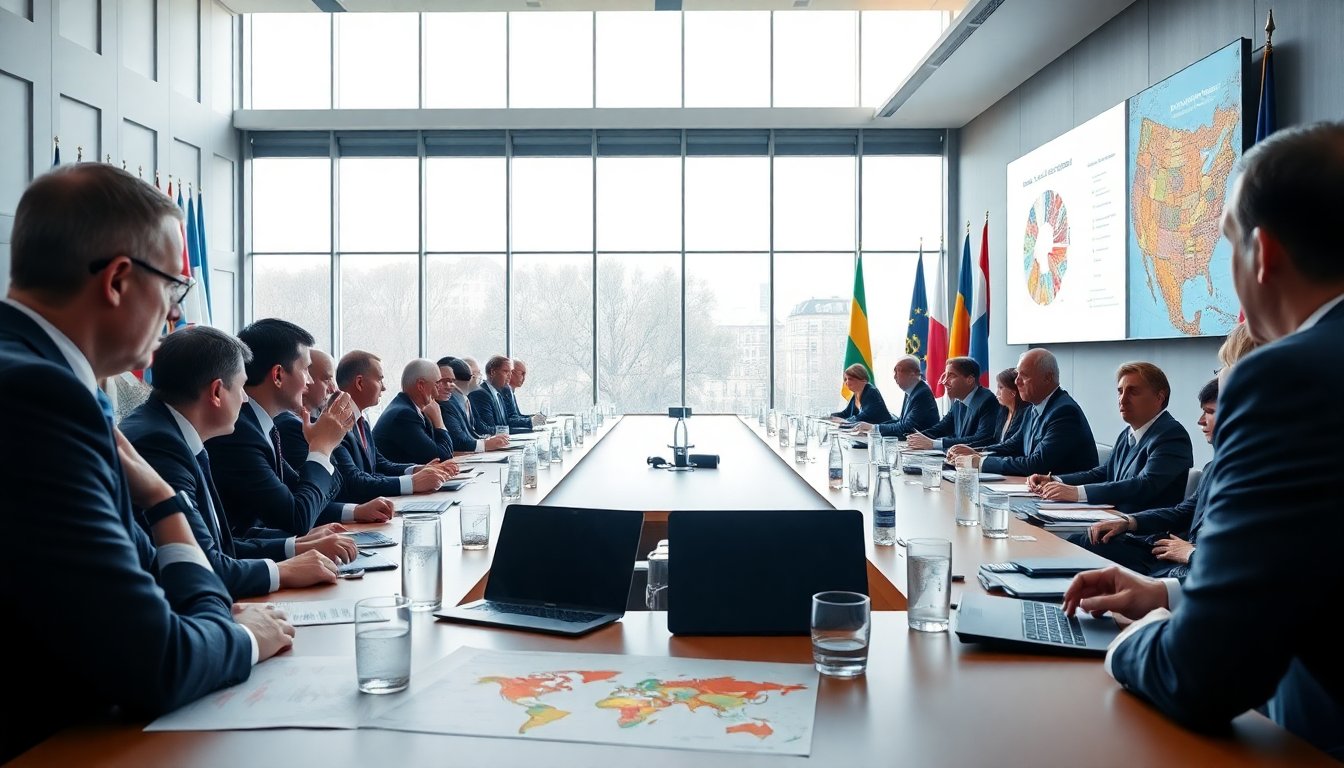Table of Contents
Tensions surrounding migration are escalating across Europe. Leaders are preparing for a significant summit to address the urgent need for effective management strategies. Discussions among interior ministers in Luxembourg will focus on alleviating public concerns while countering the growing influence of far-right political factions.
This summit represents a pivotal moment for the European Union as it confronts complex migration challenges. The 27 member states will engage in discussions in Brussels on new proposals aimed at reforming the existing migration framework.
The facts
One notable proposal involves establishing return hubs in non-EU countries for migrants whose applications have been denied. This plan seeks to streamline the process of returning individuals without the right to remain in Europe. Rasmus Stoklund, Denmark’s immigration minister, emphasized the urgency, stating that the current rate of returning irregular migrants is “unacceptable.”
The proposed system would also require member states to recognize and act on deportation decisions made by other countries. This could ease the burden on nations like Greece and Italy, where many migrants first enter Europe. Ursula von der Leyen, President of the European Commission, noted that the voluntary nature of these decisions has resulted in a significant backlog, with only a fraction of deportations being executed.
Strategies under consideration
A European diplomat indicated there is a growing consensus on the need for more efficient return processes. Proposed updates aim to facilitate faster procedures and clarify the responsibilities of member states in managing migration. The goal is to create a cohesive approach where successful deportation decisions in one country can be enforced in another, reducing the chances of migrants relocating within the EU to avoid deportation.
However, achieving these reforms presents challenges. Critics argue that mandating recognition of deportation decisions could lead to unintended consequences. For example, border countries might expedite deportations without adequately assessing individual cases, shifting the responsibility of managing migrants to other nations.
Political implications and public sentiment
The rising influence of populist parties advocating anti-immigration policies significantly drives these discussions. Mainstream political leaders face pressure to respond to the electorate’s growing dissatisfaction with current migration practices. Başak Yavçan, a research director at the Migration Policy Group, emphasized the need for stringent measures while ensuring these decisions do not empower far-right narratives dominating public discourse.
This political climate has left many governments uncertain about the best approach to these reforms. Some countries hesitate to adopt mandatory recognition laws, fearing they could become secondary migration hotspots, where individuals cross borders to evade deportation.
Funding and support distribution
As the summit approaches, distributing resources to countries under significant migration pressure remains critical. The European Commission is expected to release findings on the most affected countries and propose allocation strategies for financial and logistical support. Some EU nations have expressed frustration with frontline states like Italy and Greece, accusing them of not adhering to existing protocols.
Statistics from the EU’s data agency indicate that countries like Italy and Greece have not responded to readmission requests, complicating the management of asylum seekers. Poland has also raised concerns, seeking exemptions from commitments, arguing it has already dealt with substantial migrant influxes.
Moving forward amid complexities
This summit represents a pivotal moment for the European Union as it confronts complex migration challenges. The 27 member states will engage in discussions in Brussels on new proposals aimed at reforming the existing migration framework.0
This summit represents a pivotal moment for the European Union as it confronts complex migration challenges. The 27 member states will engage in discussions in Brussels on new proposals aimed at reforming the existing migration framework.1


